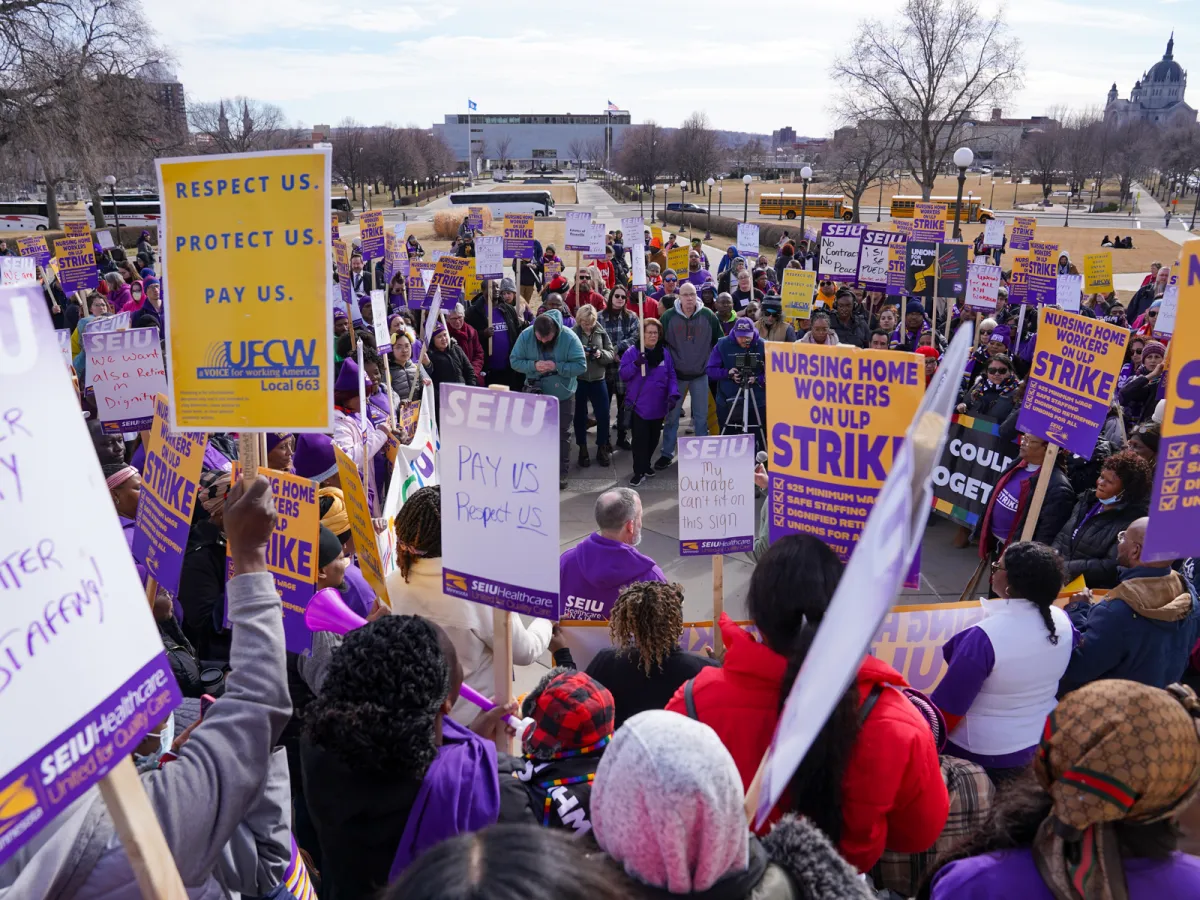A month from the date Uber and Lyft have threatened to leave Minneapolis over a new rideshare ordinance, two rival apps are testing the waters to see if they can drum up driver—and passenger—interest.
Neither the Drivers Cooperative nor Hich has applied for a license to operate in Minneapolis, but representatives said they signed up a couple hundred drivers at an event Friday backed by the Minnesota Uber/Lyft Drivers Association (MULDA).
MULDA President Eid Ali said his organization would support any alternative service provider interested in joining the market.
“Rather than being without services, riders will have multiple options, creating a better and healthier transportation infrastructure,” Eid said at Friday’s news conference.
The Minneapolis City Council overrode a veto by Mayor Jacob Frey on March 14 to pass the state’s first ordinance setting minimum pay for rideshare drivers, who are independent contractors.
The Minneapolis ordinance sets a pay rate of $1.40 per mile and $0.51 per minute, or $5, whichever is higher, for the time transporting a rider within city limits.
Uber and Lyft have said those rates are too high and that they would leave Minneapolis—and in the case of Uber, the entire Twin Cities metro—by May 1.
The rideshare giants have been lobbying Minneapolis and state officials for a much lower rate: $0.89 per mile and $0.49 per minute.
But the move has presented an opening to several smaller rideshare companies, which promise to give drivers a larger cut of the fares.
Erik Forman, a cofounder of the Drivers Cooperative, or Co-Op Ride, was in town from New York this week helping sign up drivers for a Minnesota co-op.
Co-Op Ride has about 12,000 drivers in New York, according to Forman. The company specializes in paratransit and nonemergency medical transportation, but would focus on general rideshare services should they come into the market.
Forman said the plan is to begin operation by May 1, and he’s already helped 200 drivers sign up during his first day in Minnesota.
While passengers in Minnesota will be using the same app as those in New York, their co-op could be set up differently. In New York the app takes 15% of the fare but Forman said that number could change based on what the Minnesota co-op decides.
Forman said it’s unclear yet who will be in charge of the Minnesota co-op.
“We’ll be working with drivers here to set up a locally owned Minnesota cooperative entity owned by the people of Minnesota,” he said.
He said Co-op Ride is currently running a campaign through their app to gauge interest by signing up both drivers and future passengers.
“We also need riders and so we’re calling on the people of Minnesota. Get involved, this is gonna be your company, make it happen,” Forman said.
Money is also an issue when getting a rideshare company started. Forman said “at a very bare minimum, about 200 grand,” is what’s needed to get up and running in Minneapolis.
Co-Op Ride said it’s willing to make sure drivers are paid the minimum wage called for by the Minneapolis ordinance. The app works by taking a percentage of the driver’s fare; money that is then reinvested in the company or paid to the drivers as dividends, Forman said.
A second rideshare company also announced it would enter the Minneapolis market at Friday’s news conference.
Hich recently set up a Minnesota website and lists an office in Bloomington. Mustafa Sheikh, a company representative, said Hich predominantly operates in Africa as a rideshare service, but does have a presence in Canada with cab services.
Sheikh has been in Minnesota for four months setting up office and talking to drivers. Hich’s compensation model is different from most rideshare apps because instead of taking a percentage of trip fares, it charges drivers to use the app.
Hich drivers either pay $200 to drive all month, or they can pay a daily rate of $9.99.
“We’re a startup here. We saw these drivers that are unhappy and the only thing that they’re missing is the technology—we have the technology,” Sheikh said.
Before any new rideshare app can begin operation in Minneapolis, it needs to apply for a transportation network company (TNC) license with the city. Both Hich and Driver Co-Op said they have not yet done so.
Sheikh said his attorney is working through an insurance issue before they can submit applications in Minneapolis and St. Paul. And regardless of whether Uber or Lyft leave, Sheikh said his app will be entering the market.
“My market research shows me that I can [enter the market],” Sheikh said.
According to Sheikh, the license application for rideshare companies comes with a fee. And both Minneapolis and St. Paul charge about $40,000 for their licenses.
Minneapolis lists a fee of $37,145 for a TNC license and St. Paul says it charges $41,115.
Both cities also have a minimum $1 million liability insurance requirement for drivers.
As of this week, two rideshare companies have applied for a TNC license in Minneapolis, city spokesman Casper Hill said on Thursday. Hill said the approval process usually takes two to six weeks.
Correction: A previous version of this article had an incorrect name for Hich representative Mustafa Sheikh.






